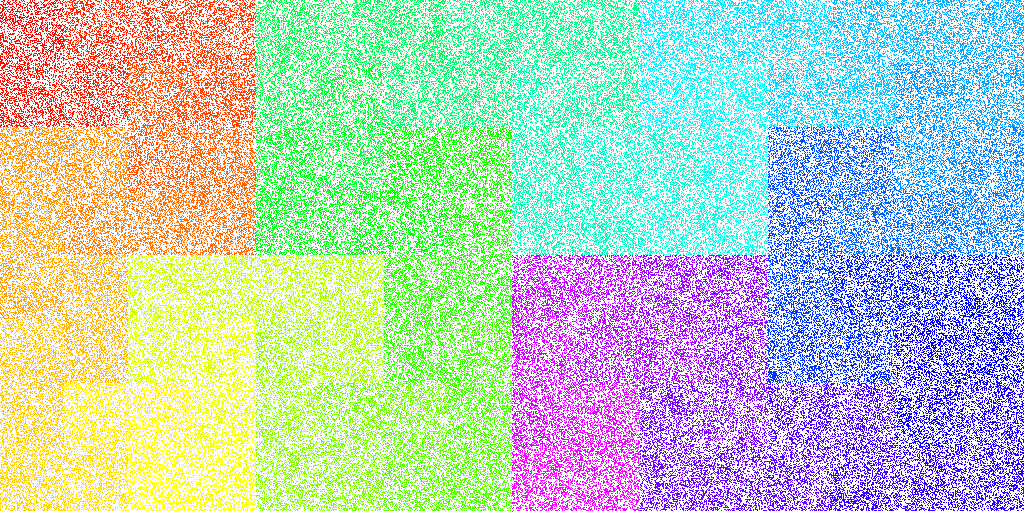I tested some different algorithms, measuring speed and number of collisions.
I used three different key sets:
For each corpus, the number of collisions and the average time spent hashing was recorded.
I tested:
Results
Each result contains the average hash time, and the number of collisions
Hash Lowercase Random UUID Numbers
============= ============= =========== ==============
Murmur 145 ns 259 ns 92 ns
6 collis 5 collis 0 collis
FNV-1a 152 ns 504 ns 86 ns
4 collis 4 collis 0 collis
FNV-1 184 ns 730 ns 92 ns
1 collis 5 collis 0 collis▪
DBJ2a 158 ns 443 ns 91 ns
5 collis 6 collis 0 collis▪▪▪
DJB2 156 ns 437 ns 93 ns
7 collis 6 collis 0 collis▪▪▪
SDBM 148 ns 484 ns 90 ns
4 collis 6 collis 0 collis**
SuperFastHash 164 ns 344 ns 118 ns
85 collis 4 collis 18742 collis
CRC32 250 ns 946 ns 130 ns
2 collis 0 collis 0 collis
LoseLose 338 ns - -
215178 collis
Notes:
Do collisions actually happen?
Yes. I started writing my test program to see if hash collisions actually happen - and are not just a theoretical construct. They do indeed happen:
FNV-1 collisions
creamwove collides with quists
FNV-1a collisions
costarring collides with liquiddeclinate collides with macallumsaltarage collides with zinkealtarages collides with zinkes
Murmur2 collisions
cataract collides with peritiroquette collides with skivieshawl collides with stormbounddowlases collides with tramontanecricketings collides with twangerlongans collides with whigs
DJB2 collisions
hetairas collides with mentionerheliotropes collides with neurosporadepravement collides with serafinsstylist collides with subgenerajoyful collides with synaphearedescribed collides with uritesdram collides with vivency
DJB2a collisions
haggadot collides with loathsomenessesadorablenesses collides with rentabilityplaywright collides with snushplaywrighting collides with snushingtreponematoses collides with waterbeds
CRC32 collisions
codding collides with gnuexhibiters collides with schlager
SuperFastHash collisions
dahabiah collides with drapabilityencharm collides with enclavegrahams collides with gramary- ...snip 79 collisions...
night collides with vigilnights collides with vigilsfinks collides with vinic
Randomnessification
The other subjective measure is how randomly distributed the hashes are. Mapping the resulting HashTables shows how evenly the data is distributed. All the hash functions show good distribution when mapping the table linearly:

Or as a Hilbert Map (XKCD is always relevant):

Except when hashing number strings ("1", "2", ..., "216553") (for example, zip codes), where patterns begin to emerge in most of the hashing algorithms:
SDBM:

DJB2a:

FNV-1:

All except FNV-1a, which still look pretty random to me:

In fact, Murmur2 seems to have even better randomness with Numbers than FNV-1a:

When I look at the FNV-1a "number" map, I think I see subtle vertical patterns. With Murmur I see no patterns at all. What do you think?
The extra * in the table denotes how bad the randomness is. With FNV-1a being the best, and DJB2x being the worst:
Murmur2: .
FNV-1a: .
FNV-1: ▪
DJB2: ▪▪
DJB2a: ▪▪
SDBM: ▪▪▪
SuperFastHash: .
CRC: ▪▪▪▪▪▪▪▪▪▪▪▪▪▪▪▪▪▪▪
Loselose: ▪▪▪▪▪▪▪▪▪▪▪▪▪▪▪▪▪▪▪▪▪▪▪▪▪▪
▪
▪▪▪▪▪▪▪▪▪▪▪▪▪
▪▪▪▪▪▪▪▪▪▪▪▪▪▪▪▪▪▪▪▪▪▪▪▪▪▪▪▪▪▪
▪▪▪▪▪▪▪▪▪▪▪▪▪▪▪▪▪▪▪▪▪▪▪▪▪▪▪▪▪▪▪▪▪▪▪▪▪▪▪▪▪▪▪▪▪▪▪▪▪▪▪▪▪▪▪▪▪▪▪▪▪▪▪▪▪▪▪▪▪▪▪
I originally wrote this program to decide if I even had to worry about collisions: I do.
And then it turned into making sure that the hash functions were sufficiently random.
FNV-1a algorithm
The FNV1 hash comes in variants that return 32, 64, 128, 256, 512 and 1024 bit hashes.
The FNV-1a algorithm is:
hash = FNV_offset_basis
for each octetOfData to be hashed
hash = hash xor octetOfData
hash = hash * FNV_prime
return hash
Where the constants FNV_offset_basis and FNV_prime depend on the return hash size you want:
Hash Size
===========
32-bit
prime: 2^24 + 2^8 + 0x93 = 16777619
offset: 2166136261
64-bit
prime: 2^40 + 2^8 + 0xb3 = 1099511628211
offset: 14695981039346656037
128-bit
prime: 2^88 + 2^8 + 0x3b = 309485009821345068724781371
offset: 144066263297769815596495629667062367629
256-bit
prime: 2^168 + 2^8 + 0x63 = 374144419156711147060143317175368453031918731002211
offset: 100029257958052580907070968620625704837092796014241193945225284501741471925557
512-bit
prime: 2^344 + 2^8 + 0x57 = 35835915874844867368919076489095108449946327955754392558399825615420669938882575126094039892345713852759
offset: 9659303129496669498009435400716310466090418745672637896108374329434462657994582932197716438449813051892206539805784495328239340083876191928701583869517785
1024-bit
prime: 2^680 + 2^8 + 0x8d = 5016456510113118655434598811035278955030765345404790744303017523831112055108147451509157692220295382716162651878526895249385292291816524375083746691371804094271873160484737966720260389217684476157468082573
offset: 1419779506494762106872207064140321832088062279544193396087847491461758272325229673230371772250864096521202355549365628174669108571814760471015076148029755969804077320157692458563003215304957150157403644460363550505412711285966361610267868082893823963790439336411086884584107735010676915
See the main FNV page for details.
All my results are with the 32-bit variant.
FNV-1 better than FNV-1a?
No. FNV-1a is all around better. There was more collisions with FNV-1a when using the English word corpus:
Hash Word Collisions
====== ===============
FNV-1 1
FNV-1a 4
Now compare lowercase and uppercase:
Hash lowercase word Collisions UPPERCASE word collisions
====== ========================= =========================
FNV-1 1 9
FNV-1a 4 11
In this case FNV-1a isn't "400%" worse than FN-1, only 20% worse.
I think the more important takeaway is that there are two classes of algorithms when it comes to collisions:
- collisions rare: FNV-1, FNV-1a, DJB2, DJB2a, SDBM
- collisions common: SuperFastHash, Loselose
And then there's the how evenly distributed the hashes are:
- outstanding distribution: Murmur2, FNV-1a, SuperFastHas
- excellent distribution: FNV-1
- good distribution: SDBM, DJB2, DJB2a
- horrible distribution: Loselose
Update
Murmur? Sure, why not
Update
@whatshisname wondered how a CRC32 would perform, added numbers to the table.
CRC32 is pretty good. Few collisions, but slower, and the overhead of a 1k lookup table.
Snip all erroneous stuff about CRC distribution - my bad
Up until today I was going to use FNV-1a as my de facto hash-table hashing algorithm. But now I'm switching to Murmur2:
- Faster
- Better randomnessification of all classes of input
And I really, really hope there's something wrong with the SuperFastHash algorithm I found; it's too bad to be as popular as it is.
Update: From the MurmurHash3 homepage on Google:
(1) - SuperFastHash has very poor collision properties, which have been documented elsewhere.
So I guess it's not just me.
Update: I realized why Murmur is faster than the others. MurmurHash2 operates on four bytes at a time. Most algorithms are byte by byte:
for each octet in Key
AddTheOctetToTheHash
This means that as keys get longer Murmur gets its chance to shine.
Update
A timely post by Raymond Chen reiterates the fact that "random" GUIDs are not meant to be used for their randomness. They, or a subset of them, are unsuitable as a hash key:
Even the Version 4 GUID algorithm is not guaranteed to be unpredictable, because the algorithm does not specify the quality of the random number generator. The Wikipedia article for GUID contains primary research which suggests that future and previous GUIDs can be predicted based on knowledge of the random number generator state, since the generator is not cryptographically strong.
Randomess is not the same as collision avoidance; which is why it would be a mistake to try to invent your own "hashing" algorithm by taking some subset of a "random" guid:
int HashKeyFromGuid(Guid type4uuid)
{
//A "4" is put somewhere in the GUID.
//I can't remember exactly where, but it doesn't matter for
//the illustrative purposes of this pseudocode
int guidVersion = ((type4uuid.D3 & 0x0f00) >> 8);
Assert(guidVersion == 4);
return (int)GetFirstFourBytesOfGuid(type4uuid);
}
Note: Again, I put "random GUID" in quotes, because it's the "random" variant of GUIDs. A more accurate description would be Type 4 UUID. But nobody knows what type 4, or types 1, 3 and 5 are. So it's just easier to call them "random" GUIDs.
All English Words mirrors







